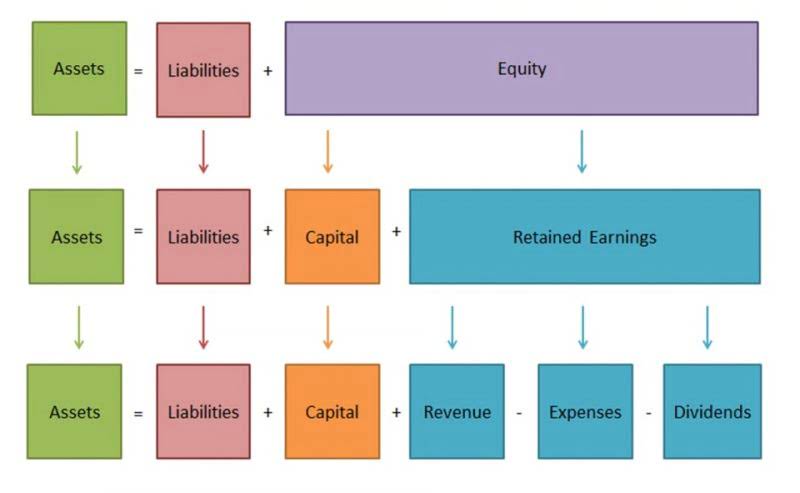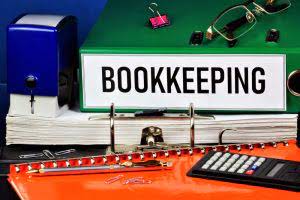Bookkeeping 101 for Small Business: A Beginners Guide to Managing Your Finances

So you’ll want to understand which tasks your bookkeeper is and isn’t responsible for handling. Our partners cannot pay us to guarantee favorable reviews of their products or services. But you still need to note that the money exited one account and entered another so you don’t accidentally duplicate any of your income or expenses. For example, a loan would go under liabilities since you’ll have to pay it back later. Amounts owing on credit cards, funds that need to be paid to vendors, or payment terms on a vehicle or item of equipment you purchased also count.
Keep Your Receipts
- While several factors go into making a business succeed, you won’t know how to accurately measure or maintain your success if you cannot keep track of the funds flowing into and out of your business.
- Since good record keeping relies on accurate expense tracking, it’s important to monitor all transactions, keep receipts, and watch business credit card activity.
- One of the most important aspects of financial transactions is recording them accurately.
- Bookkeeping is important because it gives you insight into where your money is going and how your business is performing, helping you make smart business decisions.
- Once the entries are assigned to the correct accounts, you can post them to the general ledger to get a bird’s-eye view of your current cash status.
- Otherwise, a lot of milk (product) would spoil, thus creating a loss for the store.
- Maintaining bookkeeping tasks is essential for the stability and success of small businesses.
Consider creating a labelled file folder for each of these expense categories. This way, when you make a purchase, you can immediately file the receipt in the applicable expense category, saving you time when you need to make your expense calculations. In the accrual method, on the other hand, you would record the expense in January, on the date that you received the invoice — regardless of when you ended up paying for the parts. You’re also Insurance Accounting responsible for communicating with your employees and allowing them to know the financial state of your firm. They need to know if the company is making some progress and how they contribute to its growth. Bookkeeping accounting ensures that you have the right information to talk to your team and make them feel like they’re part of the company.

Cash-Based Accounting
This involves keeping track of all the money that comes in and out of a business. Financial transactions are business activities that involve money, such as sales, expenses, and payments. Recording and organizing these transactions in a timely manner is essential for effective bookkeeping.

How software can help with bookkeeping for small businesses

Whether it’s cash basis or accrual, choose the system that’s most appropriate for your specific needs and industry. The chosen method affects record keeping, expense tracking, and most importantly–interactions with the IRS. Efficient bookkeeping involves foresight, meaning that a business should always example of small business bookkeeping plan for upcoming financial events, including tax time.
Bring Your Bookkeeper Up to Speed
Make sure to tackle your books when your mind is fresh and engaged—say, at the start of the day bookkeeping before you open your doors rather than late at night, after you’ve closed up shop. You want to be at your best when you’re looking at figures that explain your business’s profitability and help you chart a course for progress. After all, if you don’t know how much you’re making or where that money is going, you’ll have a hard time finding ways to expand your profitability. The debited account is the one that receives or loses value, and the credited account is the one that gives or gains value. The golden rules of accounting can help ensure that your bookkeeping is accurate and up-to-date. To uncover errors, check whether you forgot to record an entry in either column of your accounting ledger.

Final Tips: Keeping Your Business Finances on Track
- Then categorize your expenses into different categories, start estimating your expected revenue for the upcoming period, and allocate your expenses accordingly.
- Managing income and expenses closely and in a structured format will make it much easier to prepare taxes—whether independently or with a tax preparer.
- Accounts receivable (AR) is the money your customers owe you for products or services they bought but have not yet paid for.
- If learning the ropes of small-business bookkeeping sounds intimidating, have no fear.
- This can be sufficient for very small businesses that aren’t incorporated.
- You’re not actually making or losing any money—it’s just in a new place.
- When doing the bookkeeping, you’ll generally follow the following four steps to make sure that the books are up to date and accurate.
GAAP stands for Generally Accepted Accounting Principles, which are the best methods you can use to track and manage your business financials. These are methods used by most people in the accounting profession, so if your bookkeeping is ever questioned, your methods will be accepted by others. The accrual method is a bit more difficult, in that your bank statements might not reflect the amounts on your income sheet.

Revenue
A bookkeeper or tax professional can take this task off your plate, and give you insights that can help you make better decisions. There are a lot of tools that can help your business stay organized, and make bookkeeping easier. However, a fiscal year might be more suitable if your business follows an operating cycle that doesn’t align with the calendar year.
